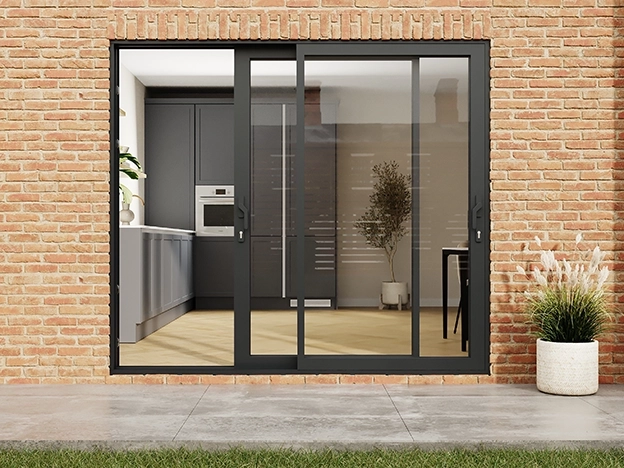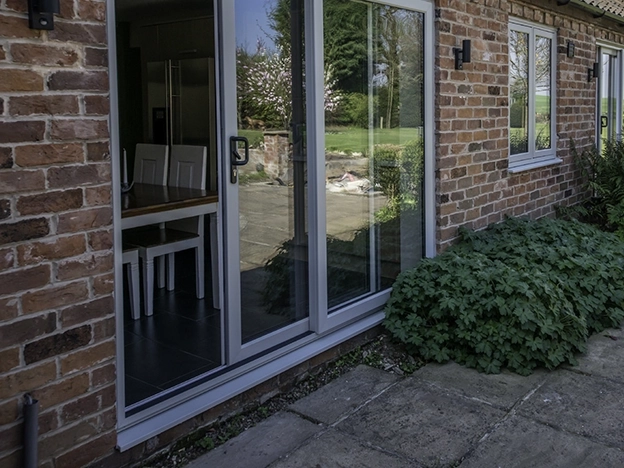Sliding Patio Doors
Frequently Asked Questions
Sliding patio doors are the answer to maximising space; offering smooth and easy access while providing bounds of natural light when closed. Available in aluminium and uPVC, these doors are long-lasting and add a high-end touch to any room, giving your home the perfect modern finishing touch.
FAQs:
Are uPVC or aluminium patio doors better?
Choosing between uPVC and aluminium patio doors depends on various factors including aesthetics, durability, energy efficiency, maintenance requirements and cost. While they both offer a sleek appearance, aluminium is generally more robust, while uPVC offers better insulation properties.
Are aluminium doors more expensive than uPVC?
Aluminium is typically more expensive than uPVC as a raw material, which is reflected in the price of each type of door. Manufacturing aluminium doors is also a more complex process that involves additional steps such as welding and powder coating.
What is the difference between uPVC and aluminium patio doors?
uPVC doors are made from a type of plastic known as PVC, which has been unplasticised to make it more rigid and durable. Aluminium doors are made from aluminium metal, which is lightweight and strong.

